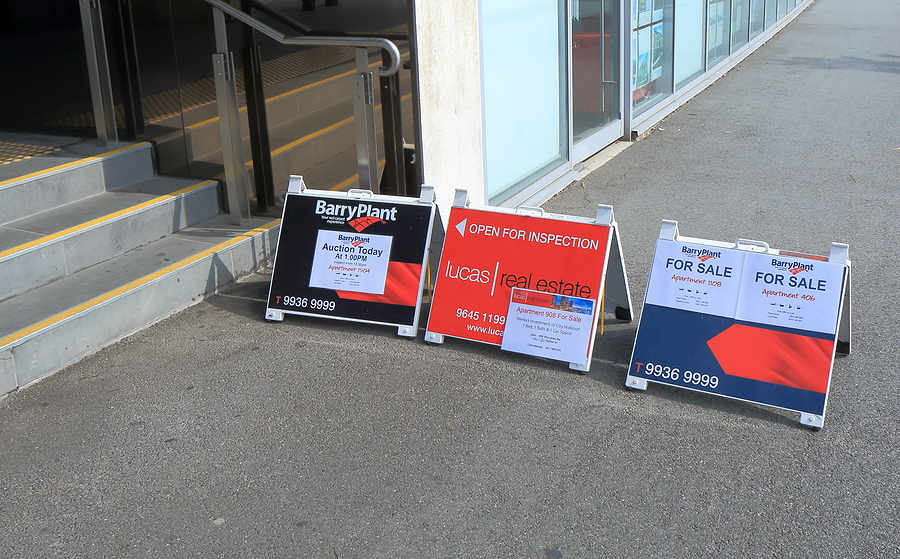Get updated on the status of property markets in Australia and around the world
Many facets of life have changed as a result of peoples’ and governments’ reactions to the COVID-19 crisis. In particular, global real estate markets have changed significantly. If property investors hope to be successful, they must be aware of the resulting trends and educated about their implications. Let’s take a look at some of the major changes that have been taking place to residential property markets in Australia and around the world:
Australia

Before COVID-19 interrupted everything, Australian property markets were booming. The boom has softened somewhat in response to COVID-19; across the country, numbers of property listings are down by an average of 20 percent year over year, and there has also been some downward pressure on housing prices. However, well-priced properties in prime locations remain in demand and are mostly still selling well. In general, the property markets in various areas of Australia have been affected by the COVID-19 crisis differently.
As of late September, 2020, Melbourne’s property market has effectively been frozen along with everything else that was locked down; it will apparently remain so until the end of October or perhaps longer.
The Victorian government has initiated not only a rental eviction freeze, but also a freeze on rental price hikes through the end of 2020. Officials have also made grant funding and land tax relief available to affected landlords.
In much of the country, home buyer demand has been trending down. Corresponding property prices have also been dropping to varying degrees, but are still higher than they were a year ago.
One noteworthy exception to the recent downtrend is the property market in Adelaide, where home prices have increased by an average of 0.6 percent since the country’s border closure in March.
Brisbane’s housing market has remained relatively stable, with negligible declines averaging only 0.1 percent since March of 2020. Brisbane’s housing market is buoyed by the mining industry, which is mostly booming in the wake of COVID-19.
In many areas of the country, rental demand is also trending down, but so far it remains higher than it was last year.
Short-term housing rental revenues across the country took a significant hit during the early days of the COVID-19 crisis, in large part because of the government’s decision to close the borders to international travelers. Some states’ border closures also contributed to the downturn. While these issues have continued to adversely affect the short-term rental markets in some areas of the country, local demand for short-term lets have helped to offset these losses. In May of 2020, the Newdaily reported that a mini recovery was underway.
The United States

In the USA, COVID-19 turned out to be one of multiple catalysts for mass migration out of the cities and into the suburbs and rural areas of the country.
Before the Coronavirus crisis, many Americans felt compelled to live in urban areas, largely because the job opportunities were more abundant there. As a result of the crisis, many employers empowered their people to begin working remotely. This made it significantly easier for people to leave the cities and move to less densely populated regions. With the closing of many stores, restaurants and bars, city living seemed far less alluring than it had before – particularly since fear of the virus was running rampant.
The result is that some of the most premium urban real estate in the country is now available for sale at previously unheard-of bargain prices. There is also a corresponding shortage of available residential real estate in many of America’s suburbs and rural areas. Some real estate agents are reporting that their listings are attracting multiple bids, and properties are often selling for prices above the seller’s asking price.
Another important change resulting from COVID-19 is the American government’s intervention in eviction procedures. The CDC has placed a moratorium on evictions for non-payment of rent through the end of 2020. This places landlords in the unfortunate position of having to continue paying property expenses, yet possibly not receiving agreed-upon rents to offset those expenses. Unlike the situation in Victoria, the US government, so far, has not promised any additional relief for landlords who are affected by the resulting non-payments.
It’s particularly important for Australian investors to be aware of these developments before risking any future property purchases in the United States.
The UK

London is currently experiencing a post-lockdown boom resulting in record high property prices. This was fueled, in part, by low levels of available inventory, and in part by a recent stamp duty holiday. Demand for rental units is also surging, with a 20+ percent increase over 2019’s figures.
As of August 2020, areas of the UK have been experiencing a “staycation boom” indicating that short-term lets appear to be in recovery. Dream Apartments and other premium short-term rentals are available in enticing markets such as Liverpool.
At this point, it is uncertain whether these booming markets will be able to maintain their momentum in light of the global economic downturn. Considering the status of the weakening labour market, it wouldn’t be surprising to see some downward pressure on house and rental pricing in the future.
That’s our current understanding of some of the major factors currently affecting the property markets in several key areas around the world. If you’re a current or aspiring property investor, either in Australia or elsewhere, we hope this information is helpful to you as you attempt to find your best path forward amidst the “new normal” that has wrought so many lifestyle changes for the world’s citizens. Do be aware that the situation is continuing to evolve, so it is critical to continue to stay informed.

